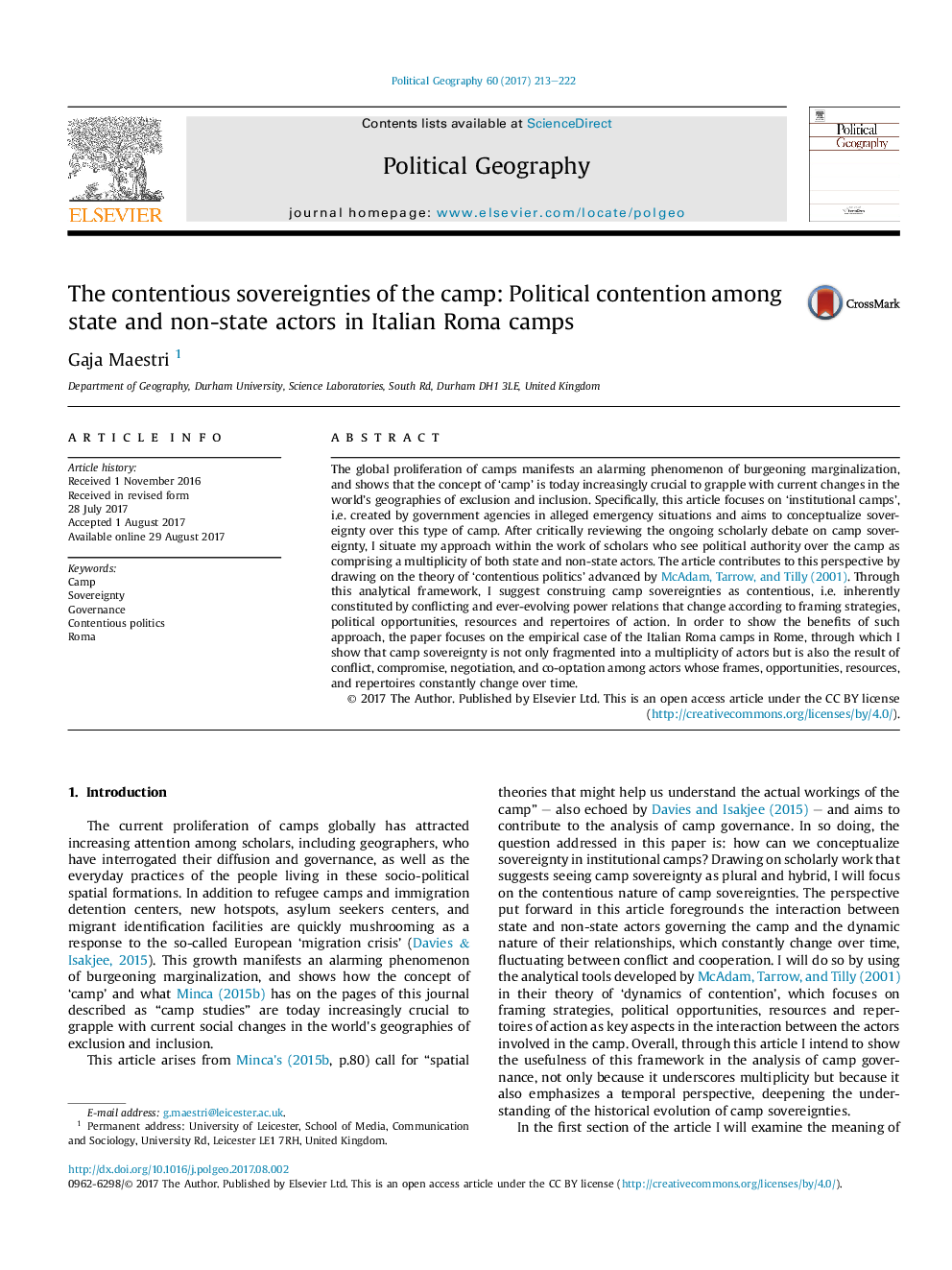| Article ID | Journal | Published Year | Pages | File Type |
|---|---|---|---|---|
| 5118524 | Political Geography | 2017 | 10 Pages |
â¢Sovereignty over camp is a heterogeneous composition of state and non-state actors.â¢Theory of political contention allows us to see camp sovereignty as contentious.â¢Sovereign actors develop different frames, opportunities, resources, repertoires.â¢Contention between sovereign actors constantly evolve in time.â¢Italian Roma camps exemplify the contentious sovereignty over institutional camps.
The global proliferation of camps manifests an alarming phenomenon of burgeoning marginalization, and shows that the concept of 'camp' is today increasingly crucial to grapple with current changes in the world's geographies of exclusion and inclusion. Specifically, this article focuses on 'institutional camps', i.e. created by government agencies in alleged emergency situations and aims to conceptualize sovereignty over this type of camp. After critically reviewing the ongoing scholarly debate on camp sovereignty, I situate my approach within the work of scholars who see political authority over the camp as comprising a multiplicity of both state and non-state actors. The article contributes to this perspective by drawing on the theory of 'contentious politics' advanced by McAdam, Tarrow, and Tilly (2001). Through this analytical framework, I suggest construing camp sovereignties as contentious, i.e. inherently constituted by conflicting and ever-evolving power relations that change according to framing strategies, political opportunities, resources and repertoires of action. In order to show the benefits of such approach, the paper focuses on the empirical case of the Italian Roma camps in Rome, through which I show that camp sovereignty is not only fragmented into a multiplicity of actors but is also the result of conflict, compromise, negotiation, and co-optation among actors whose frames, opportunities, resources, and repertoires constantly change over time.
